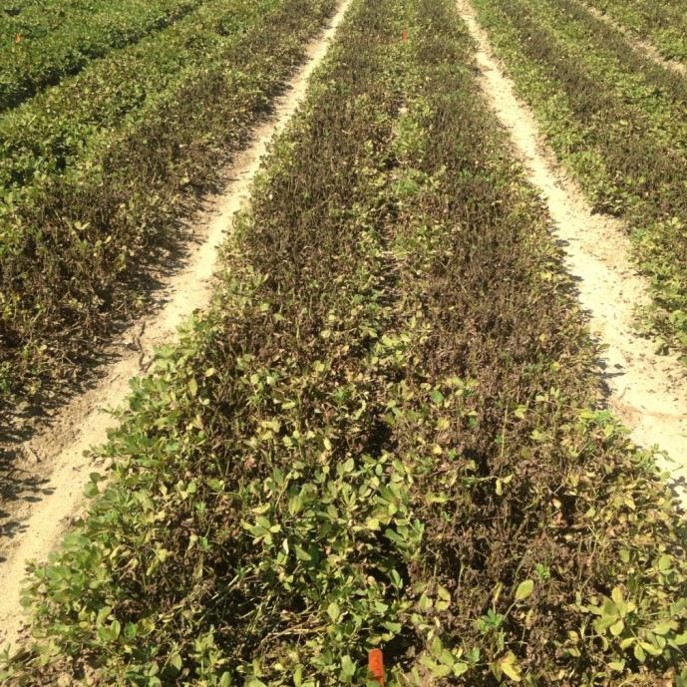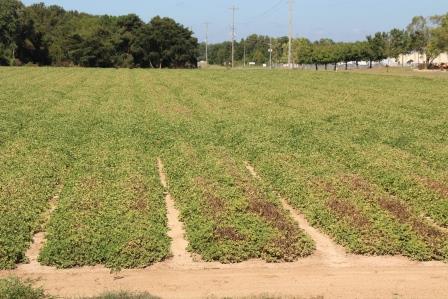We knew they were coming, and now they are here. The calls, emails, and texts have started to roll in reporting peanut fields in Georgia infested with

twospotted spider mite. Finding mite infestations early, choosing an effective miticide, and applying the miticide correctly are critically important if we hope to manage this pest. Correct application means increasing spray volume to ensure good coverage of the canopy. The extra time and water it takes to spray right the first time is a lot cheaper than a second or third trip across the field. How much water is enough? Seven gallons is NOT enough, and 20 gallons is better than 15.
Many of the mite infested fields I have seen in 2020 were treated previously

with a pyrethroid insecticide. This class of chemistry is known to flare mites in peanut, and we should avoid applying these products to non-irrigated fields when conditions are favorable for mite development (i.e. hot and dry). Bifenthrin is a pyrethroid insecticide. Even though spider mites are listed on the label, DO NOT APPLY bifenthrin to peanut fields where spider mites are present.
There are two miticides registered for use in peanut (Portal and Comite). Both products can be very effective when applied properly, but even in the best of circumstances treated fields should be monitored closely as a second application may be needed.
Spider mite problems tend to occur in fields where yield and quality are

already compromised by hot, dry weather. Knowing when to walk away and stop spending money on a crop is difficult. Your county Extension agent and specialists with the UGA Peanut Team can help make this decision.
If you have questions about spider mites or other pest management concerns in peanut, be sure to contact your local UGA county Extension agent.